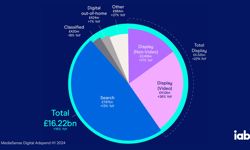
Over the last few weeks, InPublishing and Wessenden Marketing have been polling the views of people who work inside the media business as to who they think are the key individuals currently shaping media: mediashapers 2023. The research comes at a time when the business is facing unprecedented challenges and is wrangling with some big questions. What is the role of the media in our fragmenting and polarising society? Who should own and shape the media? And what is “the media” anyway?
In terms of the sheer number of votes cast, two names stand out in this year’s poll. Well in the lead, with 36% of the votes, is Elon Musk, due to his ownership of Twitter. In second place, with 19%, is Sam Altman (Founder and CEO of Open AI, which created ChatGPT) for taking AI mainstream, but particularly in the media business, with a largely unpredictable impact on our own industry’s future.
The two big media shapers
Elon Musk
“A loathsome human with no concern for ‘truth’ as we understand it.”
Musk simply didn’t feature at all when we previously ran the first mediashapers poll back in 2021. Then, he was just an eccentric user of Twitter. Now he owns it and the media-insider view has shifted - partly because his business model is not stable (“Might Twitter be the first major digital platform to collapse?”); partly because he is acting like an old-style press baron in using his media access to spread his own views and enjoy his new-found influence. “Loathsome”, “irrational”, “ego-centric” are all words used of him… “Ownership of Twitter gives him an influence that is out of all proportion to his capabilities.”
Yet alongside the very personal comments about Musk as an individual, there is a bigger debate about the Twitter platform itself – generally considered too small to survive in the open consumer market, but with an exaggerated importance within the media business itself. It is also regarded as an inherently dangerous way for any user to form a balanced view of the world. “Like it or not, Twitter shapes the conversation.” One media-insider hopes that, “The inevitable demise of Twitter should help to reinforce strong, reliable, curated news brands.” What is clear is that the battle at Twitter will have an impact way beyond the company itself - “Whether Musk succeeds or fails, the future of Twitter will influence the direction of media for years to come.”
Sam Altman
“Currently the pilot of AI….. until he loses control of it too.”
“Sam has led the debate on the economics and ethics of AI and the world of publishing will never be the same again.” Yet as a number of respondents comment, AI in publishing is not new, but its applications are spreading and accelerating into every operational area, from subs management through to newsletter personalisation. Also, the reasons why it is being deployed vary too. On one hand, “AI will appeal to the cost-cutters across our industry, as expensive humans are ripped out.” On the other hand, it could help to create better content and smarter operational processes. However, everyone is united in the view that we are on the verge of “the fourth industrial revolution” with media being at the cutting edge of AI applications.
Google vs Microsoft
Yet the AI battle among the tech giants is hotting up with Google and Microsoft currently being seen as the two key players.
Sundar Pichel (CEO, Google) receives a significant number of votes. “Google remains the media industry's gatekeeper. Its dominance of search and its ownership of much of the digital ad infrastructure means it has a unique positioning which enables it to control who sees what and how it is monetised.” Google is everywhere in the media business, funding positive industry initiatives, whilst manipulating the whole media environment for its own long-term purposes… “Out of desperation, we’ve made a Faustian pact with the company that can destroy us.”
Satya Nadella (CEO, Microsoft) also gets some mentions. “Microsoft is extremely well-positioned in most, if not all, of the key shifts in media… Nadella is one of the few major tech leaders who understands media.”
Standing back from all this, one rather weary respondent commented… “This all feels like King Kong versus Godzilla. We’re just the potential collateral damage in a battle we can’t influence.”
Who has dropped out since 2021
The big three in the 2021 mediashapers poll were Mark Zuckerberg (“clueless and conscience-free”), Jeff Bezos (the “train-set mogul”, as a result of his acquisition of the Washington Post) and Rupert Murdoch. Zuckerberg and Bezos do not get any mentions at all this time around. They clearly remain massively influential and potentially disruptive, but they are not setting the media agenda in 2023 as they were two years ago.
Murdoch remains in the 2023 list, but the views of him have changed and have become more negative. Back in 2021, he was a Marmite “saint or Satan” figure. On one side, he was seen as the patron saint of paid content – the only media leader with the scale to stand up to the tech platforms. On the other side, he was seen by most to be an almost satanic force of media control and manipulation, using his empire for his own personal agenda. In 2023, there are simply many fewer mentions (he is not seen as the agenda-setter he once was) and they are all negative, relating mainly to how Fox News has dealt with Trump. Yet here is a caustic view echoed my many: “Even after he dies, his propaganda machines, masquerading as legitimate media, will continue to help to destroy democracy.” The latest series of Succession, coupled with speculation over a possible fifth marriage, are both adding to the personal drama that continues to make Murdoch a fascinating if controversial character to most people working inside media.
While we are talking about traditional media moguls, Lord Rothermere is quietly coming up on the rails: “Rothermere leads the UK newspaper field by a distance and is also building a lifestyle, subscription-driven portfolio. By contrast, News UK is over-stretched and Murdoch is distracted; the Telegraph has no central management and is wracked by family feuding; and Reach has a stable of dying horses.”
Where have all the media leaders gone?
The feeling of there being strong media professionals leading the industry has noticeably weakened.
Two years ago, important leaders were seen to be people like Zillah Byng-Thorne (CEO, Future), Katherine Viner (Editor-in-Chief, Guardian) and Carolyn McCall (Chief Executive, ITV). In 2023, the media leaders mentioned include Sally Lehrman (Chief Executive, Trust Project), James Leaver (CEO, multilocal), Mike Follett (MD, Lumen) and Rupert Loman (CEO, Just About) – a rather eclectic collection of visionaries, strategists and very niche players, rather than traditional commercial leaders.
There is a real sense that no one looks to be at the helm of a fragmenting industry that no one seems to control any more: “The actual people changing the industry are in the trenches, doing the work.”
The growing political dimension
Politicians feature in the 2023 poll much more prominently than two years ago, in two quite distinct manifestations.
The first manifestation is politicians who use and manipulate media. Boris and Trump have receded into the background whilst Putin and Zelenskyy have come to the fore: both understand the importance of the media, but are using it in different ways and to different ends. “Zelenskyy is a heroic leader who has emerged against a backdrop of a lying cheat (Boris), a lying clown (Trump) and a lying psychopath (Putin).”
The second manifestation is political intervention in the media business. Lucy Frazer (Culture Secretary) is reckoned to be a better operator than Nadine Dorries (“a nut job”), but government influence over the general environment (Online Safety Bill) and media ownership (privatising Channel 4, media M&A constraints, BBC funding, etc.) remain, as does the current administration’s love-hate relationship with the BBC, both in terms of its content and its business models.
The influence of influencers
Independent content creators and influencers are lining up, with very varied success and business models, but with the net result that the power and financial stability of traditional media outlets are being eroded. Gary Lineker was quoted as a recent example of an individual who has raised lots of questions about the remit and power of influencers, but who has also highlighted the mess that the BBC appears to have got itself into – “It is intriguing that a sports presenter is doing a better job of challenging government policy than BBC News.”
In terms of specialist media influencers, Oprah Winfrey and Piers Morgan – rated as important in 2021 – have dropped right out of contention, whilst Andrew Neil still remains a force in 2023: “A really great investigative reporter, with a huge career behind him, but also a massive ego and an unnecessarily abrasive manner.”
And then there is Isabel Oakeshott, who outed Matt Hancock’s WhatsApp treasure trove. She receives only criticism in the poll: “Oakeshott has done more to undermine journalistic ethics and harm the protection of sources than any whistle-blower.”
In summary, the traditional “media moguls” are receding. Individual influencers are growing. The political and legislative context is becoming more important, at the same time as the active manipulation of news is now so blatant and powerful in how our whole world works. Surprising by their absence, are the high-profile executives who are meant to be running the industry. And behind it all, AI is driving into every aspect of the media business, with the potential to turn the whole industry inside out. All of this is creating a general sense that “the media” is fragmenting and spinning out of our control.
Yet there are also more positive trends. Whilst the media debate has usually focused on news outlets, there is now a recognition that consumer lifestyle and B2B platforms are growing in importance in the media ecosystem. Also, there is clearly a great deal of positive activity that is taking place in small, lean media operations rather than in the old monolithic empires. Both of these factors are picked up in the latest mediafutures benchmarking project, which maps the key commercial drivers of our spinning and fragmenting industry.
So, there is a perplexing mix of optimism and concern. And there is no concealing the fact that the media business is in a new and unpredictable phase – something that is worrying many media-insiders.
All about mediashapers
mediashapers is a poll of senior executives who work within the media business and who are held on the InPublishing database. The first research wave took place in 2021. The aim of the whole project is to gain a “media-insider’s” view on a rapidly changing and increasingly complex business, that is still an important pillar of democracy and free speech.
In this current 2023 survey, the sample was balanced and representative in terms of industry sector (news media, consumer media, B2B and industry suppliers) and job role (from Editorial through to Audience and on to Commercial & Publishing Management).
All about Wessenden Marketing
Wessenden Marketing is a leading marketing, research and advisory firm based in London, with a 31-year track record and an international range of clients across the media, logistics, retail, direct marketing, finance and business service sectors in the UK, Europe, Australia and USA. Activities cover five key services: Consultancy & Project Management, Research & Insight, Market Intelligence, Live Events, Networked Communities and Non-Exec & Mentoring. The company also has three core products: wessendenbriefing (an audience newsletter), mediafutures (an annual commercial benchmarking survey) and mediashapers.
For more information, contact Jim Bilton (MD, Wessenden Marketing)
- Email: jim@wessenden.com
- Text or phone: 07831 438020










